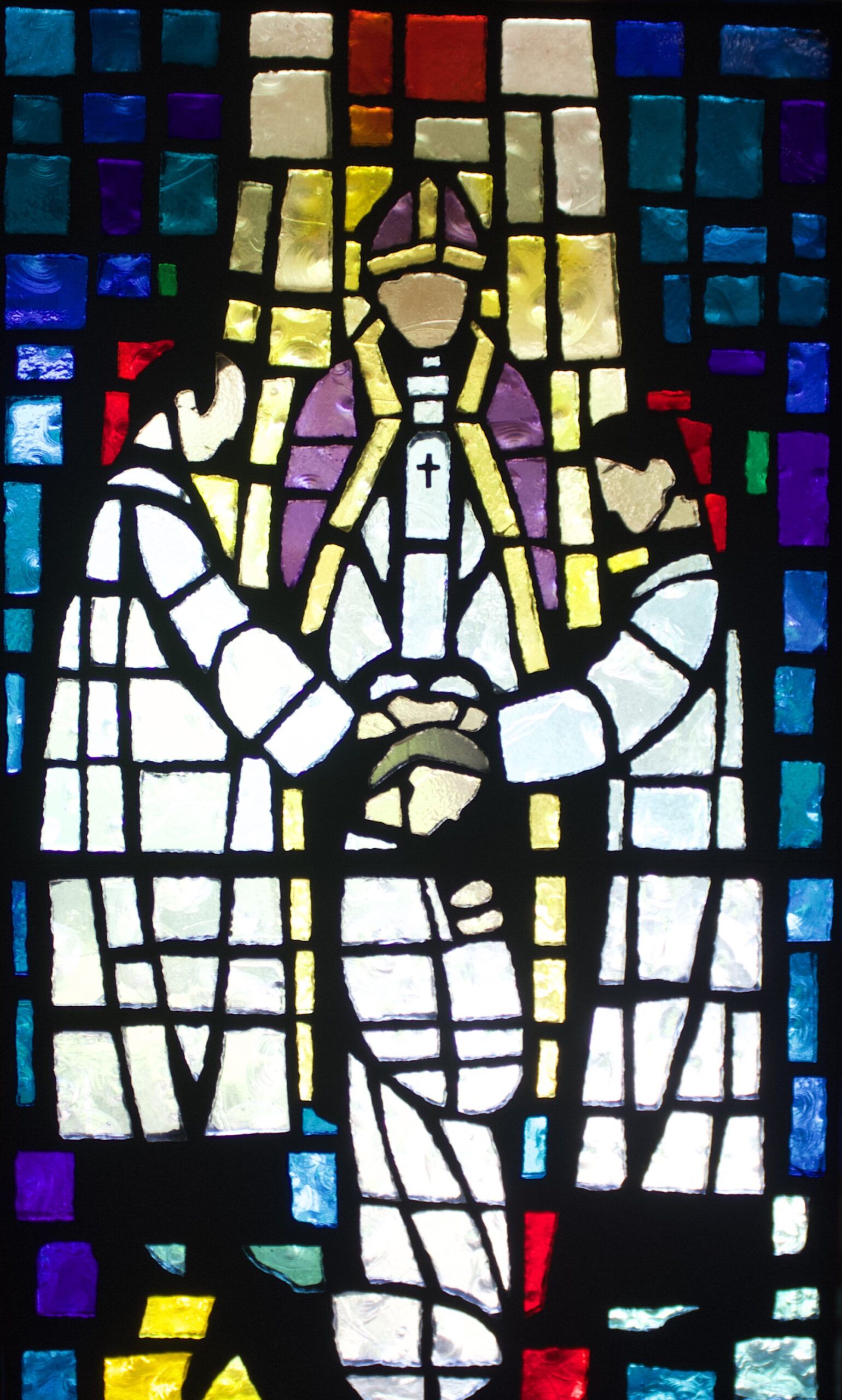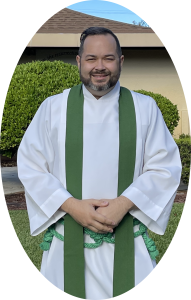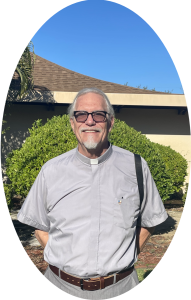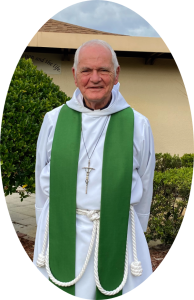ABOUT US

Who We Are
We are committed to following the teachings of Jesus Christ and upholding the traditions of the early Christian Church. Our services are rooted in the Book of Common Prayer and the Bible, and we follow a liturgical calendar that marks the important events in the life of Christ. We are a diverse and inclusive community, and we welcome people of all backgrounds, regardless of race, gender, or socioeconomic status.
At our church, we offer a range of programs and activities for people of all ages. Our services are traditional and contemplative, and we also offer a Sunday school program for children, as well as adult education classes. We are also committed to outreach and service, and we regularly partner with local organizations to help those in need.
If you are looking for a warm and welcoming community to connect with and grow in your faith, we invite you to visit us. Our doors are open to everyone, and we look forward to getting to know you and sharing the love of God with you.
What We Believe
The 39 Articles, a 1536 foundational document of Anglican theology, relates that “Holy Scripture containeth all things necessary to salvation.” The Scriptures, comprised of the Old and New Testament, as well as some apocryphal texts, were written under the inspiration of the Holy Spirit.
The Bible is of extraordinary importance to Episcopal worship; during a Sunday morning service, the congregation will usually hear at least three readings from Scripture, and much of the liturgy from The Book of Common Prayer is based explicitly on the Biblical texts. According to the Catechism, “We understand the meaning of the Bible by the help of the Holy Spirit, who guides the Church in the true interpretation of the Scriptures” (p. 853-4)
There are several translations of the Bible authorized for use, including:
King James or Authorized Version (the historic Bible of The Episcopal Church)
English Revision (1881)
American Revision (1901)
Revised Standard Version (1952)
Jerusalem Bible (1966)
New English Bible with the Apocrypha (1970)
Good News Bible / Today’s English Version (1976)
New American Bible (1970)
Revised Standard Version, an Ecumenical Edition (1973)
New International Version (1978)
New Jerusalem Bible (1987)
Revised English Bible (1989)
New Revised Standard Version (1990)
Common English Bible (2012)
The Book of Common Prayer is a treasure chest full of devotional and teaching resources for individuals and congregations, but it is also the primary symbol of our unity. As Armentrout and Slocum note in their Episcopal Dictionary of the Church, that “Anglican liturgical piety has been rooted in the Prayer Book tradition since the publication of the first English Prayer Book in 1549.”
We, who are many and diverse, come together in Christ through our worship, our common prayer. The prayer book, most recently revised in 1979, contains our liturgies, our prayers, our theological documents, and much, much more.
From the Nation Church
Creeds are statements of our basic beliefs about God. The term comes from the Latin credo, meaning I believe.
While we will always have questions about God, the Church, and our own faith, we have two foundational creeds that we use during worship: the Apostles’ Creed used at baptism and daily worship, and the Nicene Creed used at communion. In reciting and affirming these creeds, we join Christians across the world and throughout the ages in affirming our faith in the one God who created us, redeemed us, and sanctifies us.
The Apostles’ Creed
I believe in God, the Father almighty,
creator of heaven and earth;
I believe in Jesus Christ, his only Son, our Lord.
He was conceived by the power of the Holy Spirit
and born of the Virgin Mary.
He suffered under Pontius Pilate,
was crucified, died, and was buried.
He descended to the dead.
On the third day he rose again.
He ascended into heaven,
and is seated at the right hand of the Father.
He will come again to judge the living and the dead.
I believe in the Holy Spirit,
the holy catholic Church,
the communion of saints,
the forgiveness of sins
the resurrection of the body,
and the life everlasting. Amen.
The Nicene Creed
We believe in one God,
the Father, the Almighty,
maker of heaven and earth,
of all that is, seen and unseen.
We believe in one Lord, Jesus Christ,
the only Son of God,
eternally begotten of the Father,
God from God, Light from Light,
true God from true God,
begotten, not made,
of one Being with the Father.
Through him all things were made.
For us and for our salvation
he came down from heaven:
by the power of the Holy Spirit
he became incarnate from the Virgin Mary,
and was made man.
For our sake he was crucified under Pontius Pilate;
he suffered death and was buried.
On the third day he rose again
in accordance with the Scriptures;
he ascended into heaven
and is seated at the right hand of the Father.
He will come again in glory to judge the living and the dead,
and his kingdom will have no end.
We believe in the Holy Spirit, the Lord, the giver of life,
who proceeds from the Father and the Son.
With the Father and the Son he is worshiped and glorified.
He has spoken through the Prophets.
We believe in one holy catholic and apostolic Church.
We acknowledge one baptism for the forgiveness of sins.
We look for the resurrection of the dead,
and the life of the world to come. Amen.
Offered in a question-and-answer format, the Catechism found in the back of The Book of Common Prayer (pp. 845-862) helps teach the essential truths of the Christian faith and how Episcopalians live those truths. It is also intentionally organized so as to “provide a brief summary of the Church’s teaching for an inquiring stranger who picks up a Prayer Book,” with headings such as Human Nature, God the Father, The Old Covenant, The Ten Commandments, Sin and Redemption, God the Son, The New Covenant, The Creeds, The Holy Spirit, The Holy Scriptures, The Church, The Ministry, Prayer and Worship, The Sacraments, Holy Baptism, The Holy Eucharist, Other Sacramental Rites, and The Christian Hope.
Our Anglican tradition recognizes sacraments as “outward and visible signs of inward and spiritual grace.” (The Book of Common Prayer, p. 857) Holy Baptism and the Eucharist (or Holy Communion) are the two great sacraments given by Christ to his Church.
In the case of Baptism, the outward and visible sign is water, in which the person is baptized in the Name of the Father, and of the Son, and of the Holy Spirit; the inward and spiritual grace is union with Christ in his death and resurrection, birth into God’s family the Church, forgiveness of sins, and new life in the Holy Spirit. In the case of the Eucharist, the outward and visible sign is bread and wine, given and received according to Christ’s command. The inward and spiritual grace is the Body and Blood of Christ given to his people, and received by faith.
In addition to these two, there are other spiritual markers in our journey of faith that can serve as means of grace. These include:
- Confirmation: the adult affirmation of our baptismal vows
- Reconciliation of a Penitent: private confession
- Matrimony: Christian marriage
- Orders: ordination to the diaconate, priesthood, or episcopacy
- Unction: anointing those who are sick or dying with holy oil
In the waters of baptism, we are lovingly adopted by God into God’s family, which we call the Church, and given God’s own life to share and reminded that nothing can separate us from God’s love in Christ. Holy Baptism, which can be performed through pouring of water or immersion in it, marks a formal entrance to the congregation and wider Church; the candidates for the sacrament make a series of vows, including an affirmation of the Baptismal Covenant, and are baptized in the Name of the Father, Son, and Holy Spirit. They are marked as Christ’s own for ever, having “clothed [themselves] with Christ” (Galatians 3:27).
All people of any age are welcome to baptized; we believe in one baptism for the forgiveness of sins, as the “bond which God establishes in Baptism is indissoluble” (Book of Common Prayer, p. 298).
It goes by several names: Holy Communion, the Eucharist (which literally means “thanksgiving”), the Lord’s Supper, the Mass. But whatever its formal name, this is the family meal for Christians and a foretaste of the heavenly banquet. As such, all persons who have been baptized, and are therefore part of the extended family that is the Church, are welcome to receive the bread and wine, and be in communion with God and each other.
Before we come to take Communion together, “we should examine our lives, repent of our sins, and be in love and charity with all people” (Book of Common Prayer, p. 859).
The baptismal covenant, found on p. 304-5 of The Book of Common Prayer, is a small catechism for use during the rite of initiation into the Church. Armentrout and Slocum, in their An Episcopal Dictionary of the Church, note that the baptismal covenant “is widely regarded as the normative statement of what it means to follow Christ” (p. 37); in these questions and answers, the congregation expresses the ways each of the faithful will live their faith both inside and outside the church walls.
The first four questions are patterned on the Apostles’ Creed, with the liturgy’s celebrant asking the people about their beliefs in each of the members of the Trinity, along with a concise understanding of their natures. Following these questions, the covenant includes five questions regarding how we, as Christians, are called to live out our faith: with firm commitment and a reliance on God’s help.
The Baptismal Covenant
Celebrant: Do you believe in God the Father?
People: I believe in God, the Father almighty, creator of heaven and earth.
Celebrant: Do you believe in Jesus Christ, the Son of God?
People: I believe in Jesus Christ, his only Son, our Lord. He was conceived by the power of the Holy Spirit and born of the Virgin Mary. He suffered under Pontius Pilate, was crucified, died, and was buried.
He descended to the dead. On the third day he rose again. He ascended into heaven, and is seated at the right hand of the Father. He will come again to judge the living and the dead.
Celebrant: Do you believe in God the Holy Spirit?
People: I believe in the Holy Spirit, the holy catholic Church, the communion of saints, the forgiveness of sins, the resurrection of the body, and the life everlasting.
Celebrant: Will you continue in the apostles’ teaching and fellowship, in the breaking of bread, and in the prayers?
People: I will, with God’s help.
Celebrant: Will you persevere in resisting evil, and, whenever you fall into sin, repent and return to the Lord?
People: I will, with God’s help.
Celebrant: Will you proclaim by word and example the Good News of God in Christ?
People: I will, with God’s help.
Celebrant: Will you seek and serve Christ in all persons, loving your neighbor as yourself?
People: I will, with God’s help.
Celebrant: Will you strive for justice and peace among all people, and respect the dignity of every human being?
People: I will, with God’s help.
In the Episcopal Church both men and women may be called to serve at all levels of ministry both lay and ordained.
Clergy and Staff
As the clergy and staff of this church, we are dedicated to serving the needs of our community. We are ordained religious leaders who have been trained in theology and ministry, and we are here to provide spiritual guidance and support. Our staff members are an integral part of the church, working behind the scenes to manage the day-to-day operations and provide assistance to our members. We are here to support you on your spiritual journey, and we are happy to answer any questions you may have. Thank you for being a part of our church community!



